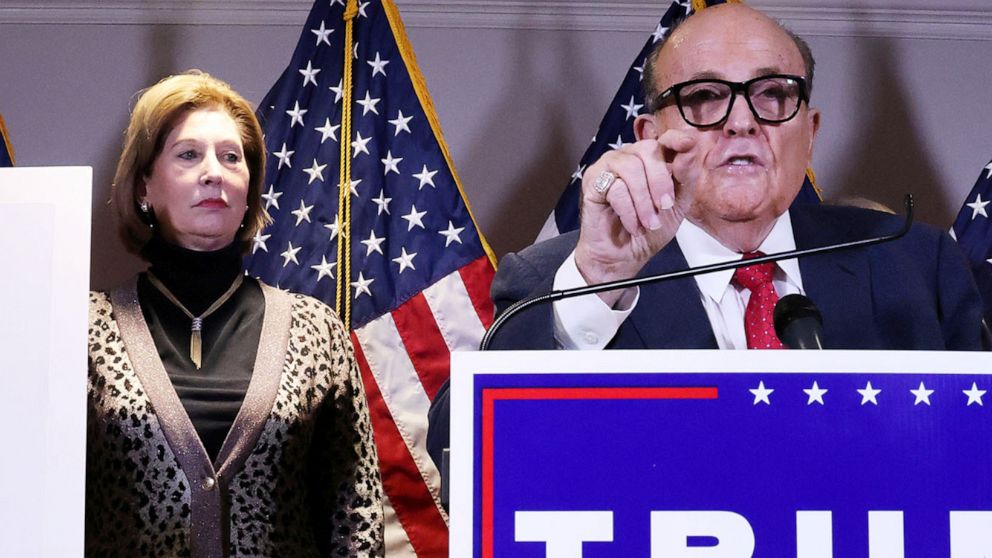Time
How ‘America’s Frontline Doctors’ Sold Access to Bogus COVID-19 Treatments—and Left Patients in the Lurch
By Vera Bergengruen August 26, 2021
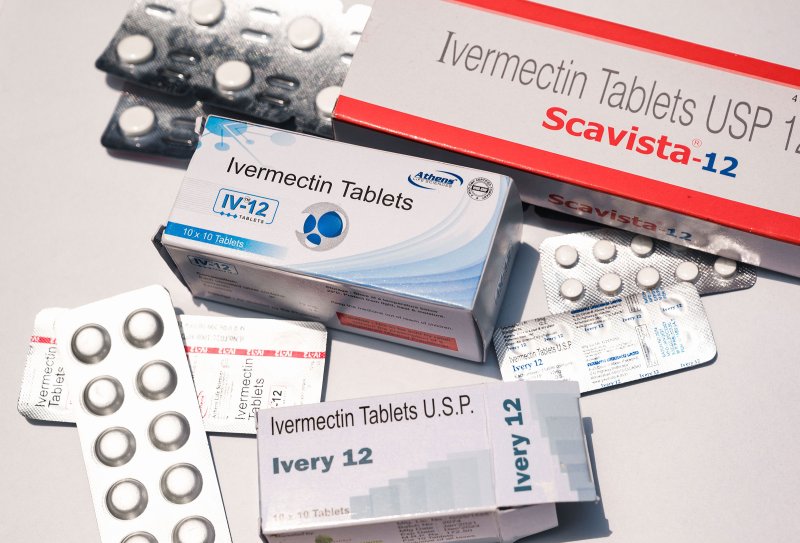 Tablets of Ivermectin on May 19, 2021. Soumyabrata Roy—NurPhoto/Shutterstock
Tablets of Ivermectin on May 19, 2021. Soumyabrata Roy—NurPhoto/Shutterstock
Mike says he was struggling with COVID-19 when he felt his breathing getting worse. He did not want to go to the Veterans Affairs hospital near his home, where he believed doctors might put him on a ventilator. And he knew they would not prescribe the treatment he really wanted: a drug called ivermectin.
So in late July, Mike, who says he is a 48-year-old teacher and disabled veteran from New York state, contacted America’s Frontline Doctors (AFLD), a group he had been following on social media. AFLD has been a leading promoter of ivermectin, a medication typically used to treat parasitic worms in livestock, as a “safe and effective treatment” for COVID-19. Through its website, Mike says, he paid the group $90 for a telemedicine appointment with a doctor willing to prescribe the drug.
A week later, he was still anxiously waiting for the consultation. Calls and emails to AFLD went unreturned, he says. Finally, he called his bank to report a fraudulent charge. “Not even an apology,” Mike, whom TIME is referring to using a pseudonym because of his concerns about his job, told TIME in an interview. “This is absolutely nuts. This organization is not helping anyone but their pocketbooks.”
Similar stories have flooded anti-vaccine forums and messaging apps in recent weeks as some customers and donors raise doubts about AFLD. The group describes itself as a “non-partisan” group of medical professionals. But it originated as a right-wing political organization, and since its founding has consistently spread medical misinformation. Its name implies the group consists of physicians on the frontlines of the pandemic, but it’s not clear how many of its members have spent any time treating patients with COVID-19.
Its followers aren’t the only ones with questions about AFLD. It’s hard to pin down how many people the group employs, how much money it’s taking in, or how that money has been spent, in part because the non-profit has failed to file required disclosures. After it failed to submit its annual report in Arizona, where the group is registered under the name “Free Speech Foundation,” the state recently downgraded the organization’s charitable status to “pending inactive.”
Over the past three months, a TIME investigation found, hundreds of AFLD customers and donors have accused the group of touting a service promising prescriptions for ivermectin, which medical authorities say should not be taken to treat or prevent COVID-19, and failing to deliver after a fee had been paid. Some customers described being charged for consultations that did not happen. Others said they were connected to digital pharmacies that quoted excessive prices of up to $700 for the cheap medication. In more than 3,000 messages reviewed by TIME, dozens of people described their or their family members’ COVID-19 symptoms worsening while they waited for an unproven “wonder drug” that didn’t arrive.
“My mom has now been admitted to the hospital with Covid,” one user wrote Aug. 12 on the group’s channel on the messaging app Telegram. “AFLDS has not returned a call or message to her and they’ve taken over $500 out of her account!”
Since its founding last year by Dr. Simone Gold, a Los Angeles physician who was later arrested during the Jan. 6 attack on the U.S. Capitol, America’s Frontline Doctors has nurtured medical conspiracies popular in right-wing circles. Created as a political project to support the Trump Administration’s economic reopening push, it ricocheted from promoting skepticism about COVID-19 to launching a national RV tour to denounce “medical censorship and cancel culture.” It promoted hydroxychloroquine as a miracle drug and billed itself as a provider of legal services for people who refuse to be vaccinated or to wear a mask, or who want to stop vaccinations for children.
The group’s profile has soared amid the rise of employer-imposed COVID-19 mandates and the emergence of ivermectin as an alternative treatment of choice for the broader anti-vaccine community. AFLD’s Telegram channels have rapidly grown to more than 160,000 users. Its website traffic has quadrupled since April, according to an analysis by the web-analytics company SemRush, which estimates it drew nearly half a million visitors in July. In the process, AFLD’s reach has spread beyond to mainstream sites like Instagram and TikTok, making it a leading purveyor of medical disinformation that erodes public confidence and hinders efforts to get the pandemic under control, experts say.
“They’re the 21st century, digital version of snake-oil salesmen,” says Irwin Redlener, a physician who directs the National Center for Disaster Preparedness at Columbia University. “And in the case of ivermectin, it’s extremely dangerous.”
America’s Frontline Doctors declined repeated requests for comment on this story. On its Telegram channels, moderators have blamed user error and overwhelming demand for the ivermectin delays and promised refunds for customers who fail to receive the consultations with doctors that they paid for. Attempts to reach Dr. Gold, the group’s founder, through her lawyer were unsuccessful.
Federal authorities are cracking down on coronavirus-related telemedicine schemes. The Federal Trade Commission has sent nearly 400 warning letters to groups and individuals marketing false COVID-19 treatments, including one missive, in April, telling a Texas medical practice to “immediately cease” promoting ivermectin or face steep fines. It is illegal under the federal COVID-19 Consumer Protection Act, enacted earlier this year, to advertise that a product can prevent, treat or cure COVID-19 “unless you possess competent and reliable scientific evidence substantiating that the claims are true.” No such study exists for ivermectin, according to the FDA.
Yet despite the FDA’s warnings about the dangers of misusing ivermectin to treat or prevent COVID-19, the drug has become highly sought after in anti-vaccine circles. Doctors and pharmacists tell TIME they have noticed a surge in ivermectin prescriptions called in by telemedicine services, and a growing number of patients demanding it as an alternative to COVID-19 vaccines. Many who fail to obtain prescriptions through groups like AFLD or find it too expensive have resorted to buying an alternative from feed stores that is designed for use in livestock, according to Telegram chats, which reveal members advising each other on proper dosages. Mississippi health officials said Aug. 20 that 70% of recent calls to its poison control center were from people ingesting ivermectin meant for livestock. A nurse checks on a patient in the ICU Covid-19 ward at NEA Baptist Memorial Hospital in Jonesboro, Ark., on Aug. 4, 2021. Houston Cofield—Bloomberg/Getty Images
A nurse checks on a patient in the ICU Covid-19 ward at NEA Baptist Memorial Hospital in Jonesboro, Ark., on Aug. 4, 2021. Houston Cofield—Bloomberg/Getty Images
The ivermectin craze reflects some of the most damaging elements of the post-Trump conservative movement, with a mixture of political profiteering, disinformation, exploitation of social media and conspiratorial thinking combining at a critical point in the pandemic. AFLD has capitalized on “the perfect storm of everything that you needed to have a large population of people susceptible to vaccine misinformation,” says Kolina Koltai, a researcher who studies the anti-vaccine movement at the University of Washington. “America’s Frontline Doctors are really good at what they do. This idea of doctors fighting the system is a narrative that is really appealing to a lot of people.”
‘A coordinated political effort’
On July 27, 2020, a small group of doctors assembled on the steps of the Supreme Court for a news conference. At the time, President Donald Trump was pushing for governors to reopen their states and conservatives had grown increasingly frustrated with lockdown measures. The physicians, who wore white lab coats embroidered with the AFLD logo, had come to repeat a range of White House talking points. They claimed the mental toll of the lockdowns was worse than the virus itself, that hydroxychloroquine was an effective treatment for COVID-19 and that masks weren’t necessary—all of which had been contradicted by U.S. health officials.
To the extent that the mainstream medical community paid attention to the group at all, it was to point out that these doctors making misstatements lacked the expertise to comment. There was no evidence that any of the doctors who spoke that day had treated patients severely ill with the virus, according to MedPage Today, a peer-reviewed medical news site. None of them were infectious-disease experts or worked in intensive-care units during the pandemic. One was best known for promoting bizarre religious beliefs, including tweeting that America needed “deliverance from demon sperm” because people were falling ill from having sex with demons and witches in their dreams. Two of the “frontline” doctors were ophthalmologists, only one of whom was still licensed.
The emergence of AFLD was a coordinated political effort months in the making. The group was the brainchild of the Council for National Policy (CNP), a secretive network of conservative activists. During a May 11 call of CNP members that was leaked to the Center for Media and Democracy, a progressive watchdog group, members complained that Trump was being slammed for his handling of the pandemic, including failing to follow scientific guidelines. The group needed their own medical professionals to promote their message, they said, in the face of data showing two-thirds of Americans were wary of restarting the economy.
“There is a coalition of doctors who are extremely pro-Trump, that have been preparing and coming together for the war ahead in the campaign on health care,” Nancy Schulze, a Republican activist married to a former Pennsylvania congressman, said on the call. “And these doctors could be activated for this conversation now.”
Eight days later, conservative groups publicized a letter signed by more than 500 doctors calling the lockdowns a “mass casualty event.” The lead signatory was Dr. Simone Gold, a licensed emergency-room physician and Stanford-educated lawyer who was working as a part-time, independent contractor in a hospital in Bakersfield, Calif. Ten weeks after the letter’s release, Gold was standing on the steps of the Supreme Court as the founder of AFLD as Rep. Ralph Norman, a South Carolina Republican, thanked the white-coated physicians for coming to “tell us the truth.” The event was hosted and funded by the Tea Party Patriots, a pro-Trump right-wing group.
While few people attended the event, a video of the press conference went viral after it was retweeted by Trump, earning some members of the group an audience with Vice President Mike Pence. And though it was subsequently removed by social-media platforms for spreading misinformation, Gold and other members made the rounds on conservative media, from Fox News to Alex Jones and Pat Robertson.
Since then, the group has positioned itself as the leading alternative medical source for COVID-19 skeptics. Its message has changed to match the moment. At first, Gold downplayed the severity of the virus. “We’re all acting as though there’s a huge medical crisis,” she said in a May 2020 video, as the number of Americans dead from COVID-19 passed 100,000. “I’m not sure that it’s front-page news.” The real issue, Gold added, was that “our constitutional rights are being trampled on right and left.”
Soon after, the group argued there was a conspiracy to suppress an effective treatment for the pandemic ravaging the globe. “If all Americans had access to hydroxychloroquine, the pandemic would essentially end in about 30 days,” another member of AFLD, a child psychiatrist named Mark McDonald, said on a video picked up by Alex Jones’ NewsWars website. The group soon partnered with a telemedicine site set up by right-wing conspiracy theorist Jerome Corsi to sell prescriptions for the medication, which Trump promoted and said he took as a preventive measure.
As it turned out, promoting fictions about COVID-19 could be profitable. AFLD built a slick website, whose domain was bought by the Tea Party Patriots, and an email list of loyal followers whom they urged to make donations. When Gold was arrested for participating in the Jan. 6 insurrection, emails to supporters requesting their “urgent and generous donations to withstand such aggressive assaults from the ruthless enemies of free speech” raised more than $400,000 for Gold’s legal defense.
In the spring of 2021, the group announced a national RV tour, which sold VIP tickets for a “meet-and-greet” with Gold for $1,000. According to AFLD Telegram channels, they frequently canceled scheduled appearances, leaving people who had taken the day off work or driven for hours in the lurch. “Hundreds of us registered and received no information or cancellation notice,” one disappointed supporter in Cleveland wrote on June 22 when the promised tour did not arrive. AFLD moderators, meanwhile, urged followers that such events could “continue only when everyone donates what they can monthly.”
By then, the group had pivoted from hydroxychloroquine and medical choice to anti-vaccine content. AFLD falsely claimed the Covid-19 vaccines were “not effective in treating or preventing” the virus and that they had killed 45,000 people in the U.S. “This is an experimental biological agent whose harms are well documented,” Gold said in a statement on the group’s website in May. The group compared lockdown measures to Communist tactics of the 1950s and urged supporters to call their lawmakers to demand they introduce a “Vaccine Bill of Rights”—versions of which soon cropped up in Wyoming, Kansas, Missouri, Minnesota and South Carolina, including boilerplate written by AFLD.
Then, as the Delta variant tore across the U.S. and people in AFLDs forums started to report themselves or their family members falling ill, the group started heavily promoting ivermectin.
‘I feel scammed.’
Ivermectin first gained prominence in December 2020, when Dr. Pierre Kory, then a pulmonary care specialist at a Wisconsin hospital, testified about the “wonder drug” to a Senate panel chaired by Wisconsin Sen. Ron Johnson, a Trump ally known has touted alternative treatments to COVID-19.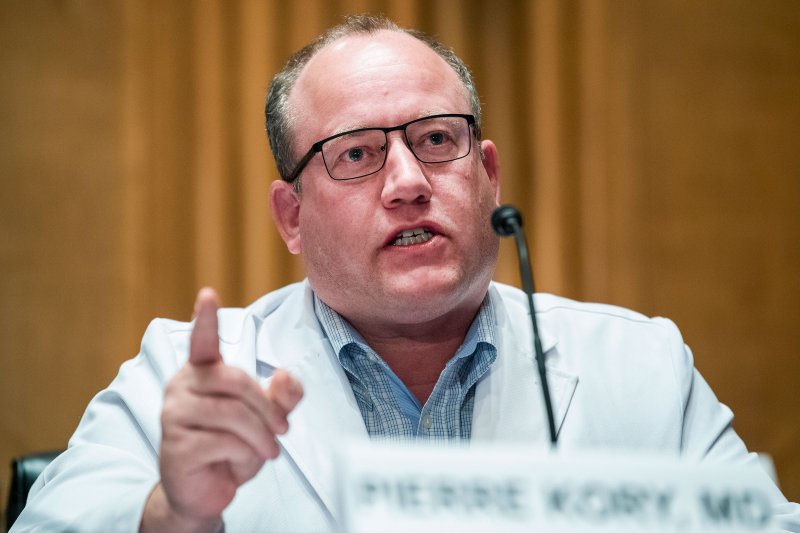 Dr. Pierre Kory testifies during the Senate Homeland Security and Governmental Affairs Committee hearing titled Early Outpatient Treatment: An Essential Part of a COVID-19 Solution, Part II, in Dirksen Building on Dec. 8, 2020. Tom Williams—CQ-Roll Call/Getty Images
Dr. Pierre Kory testifies during the Senate Homeland Security and Governmental Affairs Committee hearing titled Early Outpatient Treatment: An Essential Part of a COVID-19 Solution, Part II, in Dirksen Building on Dec. 8, 2020. Tom Williams—CQ-Roll Call/Getty Images
The anti-parasite drug, which is commonly used for horses, is approved to treat certain parasitic worms in humans. It is not an antiviral medication and there is no evidence that it is effective in preventing or treating Covid-19, according to the FDA, which says overdoses of the drug can lead to vomiting, allergic reactions, seizures, coma, and even death.
Two pharmacists told TIME said they were alarmed when they noticed an odd surge in ivermectin prescriptions called in by telemedicine doctors in recent weeks. “We’re calling it the second coming of hydroxychloroquine,” one pharmacist in Maine says, noting he had seen prescriptions come in from “quack telehealth prescribers” in Texas, Florida, Illinois and California. “It’s wild to me and other pharmacists I’ve talked to how people won’t get a vaccine that is well-tolerated and effective because it’s ‘experimental’ but they’ll take a dose of ivermectin that’s been extrapolated based on weight from equine veterinary guidelines.”
On social media, AFLD is one of the top organizations steering customers to the de-worming medication as a coronavirus treatment. On its website, people looking for “Covid-19 medicine” are told to click on a button labeled “Contact a physician” and pay $90 for a consultation. The link takes customers to another website, “Speak With An MD,” where they’re asked to submit payment information and told that one of the “frontline doctors” will call them within a few days, with sick patients being prioritized. The group describes “Speak with an MD” as a “telemedicine service with hundreds of AFLDS-trained physicians.”
But the actual service is Encore Telemedicine, a company that connects patients to teledoctors willing to write prescriptions, according to the web portal and posts by AFLD staffers. Since 2015, it appears to have been run out of a home by a golf club in suburban Georgia, according to its business registration. (Encore’s CEO did not respond to requests for comment.)
The orders made through Encore Telemedicine then go to Ravkoo, a digital pharmacy in Auburndale, Florida, whose address listed online appears to be a dilapidated white structure by a strip mall. Ravkoo is supposed to either mail the medicine or call it into a local pharmacy. (The owner of Ravkoo did not respond to requests for comment). The cost of the medicine is applied on top of the consultation fee, and varies widely, from $70 to $700, according to AFLD customers’ comments.
It’s not clear how much America’s Frontline Doctors gets from each patient referral. The service is marketed on AFLD’s site for $90, while a direct telemedicine consultation through Speak With An MD is listed at just $59.99, a $30 difference. AFLD declined to comment on whether they receive any financial benefit from the referral.
AFLD has been using this system to sell hydroxychloroquine since at least last fall. But the network has been overwhelmed by a surge in demand for ivermectin in recent weeks, according to frustrated customers.
The group’s chaotic Telegram channels are filled with questions. Some say they paid for a consultation but never received a call from a doctor. Others say they were prescribed ivermectin but never received it; still others received the wrong medications or were charged inflated prices. Customers claimed to have paid for the non-refundable consultation and the drugs, only to have their local pharmacies refuse to fill the prescription because ivermectin is not approved to treat COVID-19. All of these people reported that repeated calls and emails sent to AFLD, Encore Telemedicine and Ravkoo went unanswered.
Many users call the arrangement a fraud. “Still no drugs as prescribed! Have not heard from their pharmacy. Very disappointing,” one user wrote on Telegram Aug. 1. “They took my money though. Definitely feels like a scam.” That same day, another frustrated customer wrote: “You tell us the vaccine producers are getting rich off us. Seems like you are doing very well yourselves?”
Another user told TIME she paid the $90 and never got the doctor consultation, but did get a call from a pharmacy that charged her another $100. “I have not heard a word. I feel scammed,” says the user, who would provide only her first name, Denise.
Other supporters, who had been promised they’d speak to “AFLDs-trained physicians,” were upset when the doctor pressed them to get the vaccine during the paid phone consultation. “Not happy at all with that!” wrote one woman who said her daughter’s telemedicine doctor had told her to get vaccinated in addition to prescribing ivermectin. “I felt like I could trust them not to push the vaccine…severely disappointed.”
Dozens of messages reviewed by TIME were from people with sick family members, who were begging for AFLDs to escalate their cases. A woman named Chynthia who had paid the fee—“$90 is a lot for us,” she said—wrote that she had never been called back. “Please help! My husband is sick. And looks like he does have a hard time breathing.”
As the confusion has mounted, some have questioned the group’s motives. A user named Vinod told TIME he had been a monthly donor to AFLD but had to call his credit-card company to stop repeated fraudulent charges and ask for a replacement card to prevent other fees from piling up.
Moderators for the AFLDs group on Telegram acknowledged to frustrated users that they were overwhelmed by the demand, although they said to “blame the CDC for the blockade” of ivermectin. But they insisted that once the physician fee is paid, “this is out of AFLDs hands operationally because of HIPPA [sic].”
‘The anti-vax movement as a whole is one big multi-level marketing scheme.’
The embrace of ivermectin by the broader anti-vaccine community has expanded AFLD’s reach. On TikTok, more than a dozen accounts reviewed by TIME show young people, some of them teenagers, touting ivermectin as a COVID-19 cure and promoting AFLD as the place to buy it. “It’s done wonders for me and it’s kicked Covid’s ass,” said one young user who documented her recovery over six videos, using the hashtag #novaccine and recommending others get ivermectin through AFLD.
Dr. Siyab Panhwar, a cardiology fellow at the University of Tulane, has been using his own TikTok account to refute misinformation about ivermectin. “The unfortunate reality is that there are some doctors that push this, and it harms the entire community,” says Dr. Panhwar. “[AFLD] say on their website that they will ‘review your history’ but I call B.S. There is no physical examination…How is this medically appropriate or safe? AFLD is dangerous and needs to be stopped.” The financial incentive to push products like ivermectin should be a massive red flag, Panhwar says. “The anti-vax movement as a whole is one big multi-level marketing scheme.”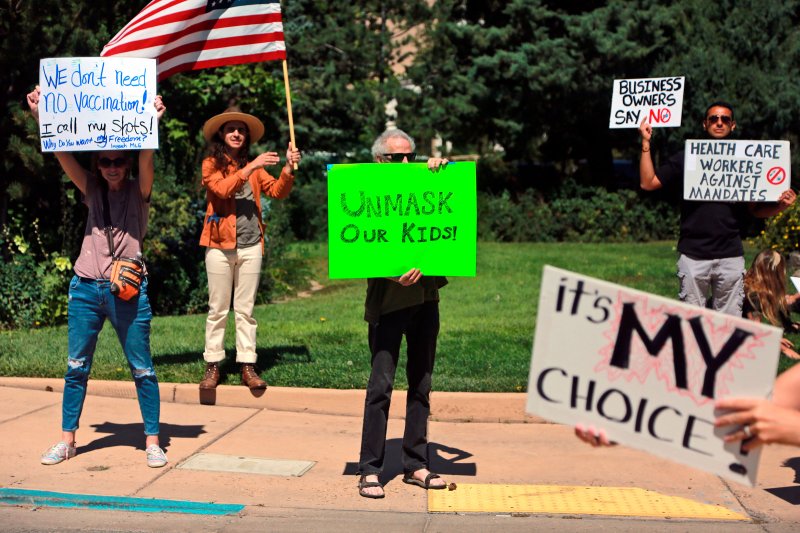 Protesters against COVID-19 vaccine and mask mandates demonstrate near the state Capitol in Santa Fe, N.M. on Aug. 20, 2021. Cedar Attanasio—AP
Protesters against COVID-19 vaccine and mask mandates demonstrate near the state Capitol in Santa Fe, N.M. on Aug. 20, 2021. Cedar Attanasio—AP
None of this is slowing AFLD’s movement. As fights over vaccine mandates and school-masking policies ramp up, AFLD has created “Citizen Corps” chapters in almost every state, with dedicated Telegrams channels and public events, like a Texas meeting that drew 80 people to hear lectures about vaccine side effects. At the group’s “White Coat Summit” in July to commemorate its first anniversary, it cut a video of children ceremonially burning their masks while singing “We Are The World.”
AFLD has meanwhile garnered significant publicity by touting itself as a legal resource for people who want to defy employers’ mandates to be vaccinated, tested or wear a mask. AFLD has used its “legal eagle dream team” to solicit funds, but according to some donors, that promised help has also failed to materialize. “Still waiting to hear back from legal eagle,” a user named Carlos, who said he had submitted multiple forms and emails for legal help, said on Telegram on Aug. 14. “I’m about to get fired and need legal help.”
Several supporters said they were defying employer vaccine mandates based on information and advice from AFLD. “I hope you guys are right,” a user named Jeffery posted on Aug. 20 in response to a video from the group promising to fight vaccine mandates in court. “I’m about to lose my career of over 20 years, my pension and my livelihood because I’m not taking the shot.” Others say their employers laughed off the vaccine-exemption forms they’ve printed off the AFLD website. “I am losing hope,” wrote one user named Cathy on July 6. “I just spoke with a lawyer that said the proof from Frontline Doctors is a conspiracy theory.”
The pleas of customers who trusted the group have often grown desperate. “Does anyone know how long it takes to hear back from America’s Frontline Doctors about getting Covid medicine?” asked a user who said she was pregnant and having chest pain and shortness of breath from the virus. “It seems like I’ll never hear back from them in my worst moment of need.”
On Aug. 17, one man posted in the group’s Telegram that he had waited on AFLD for weeks before they canceled his consultation for ivermectin. “Wish they hadn’t because my wife is in the ICU now,” he wrote. “Had I gotten the meds she would have been fine.”
With reporting by Alejandro de la Garza, Simmone Shah and Julia Zorthian


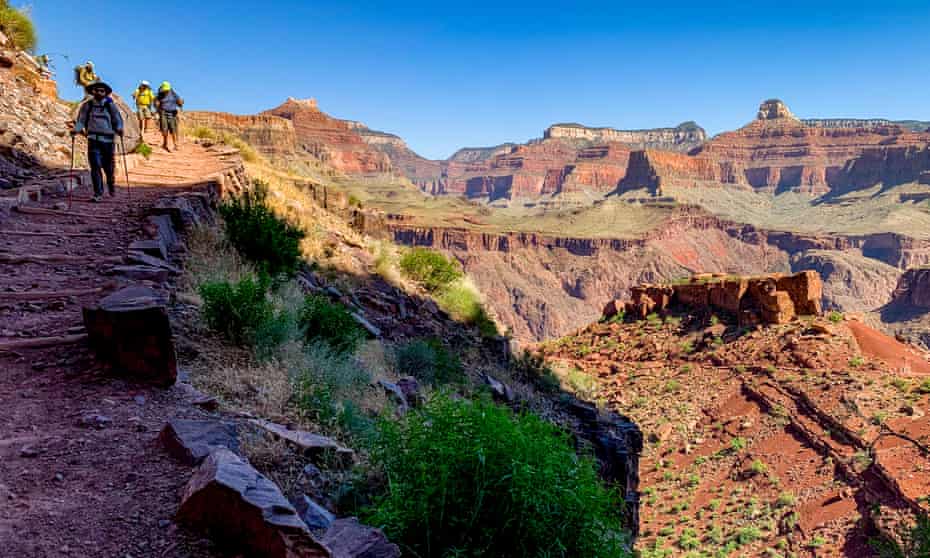
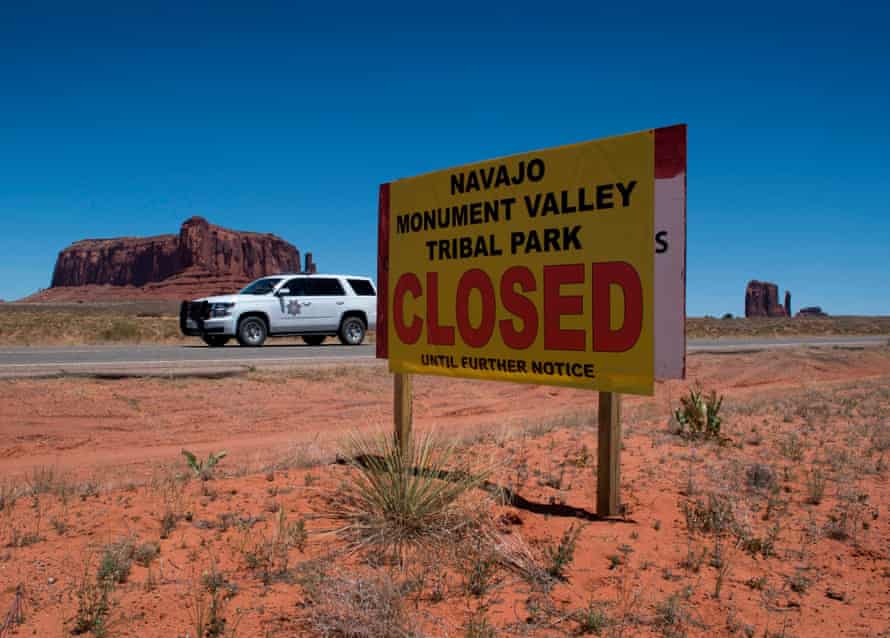



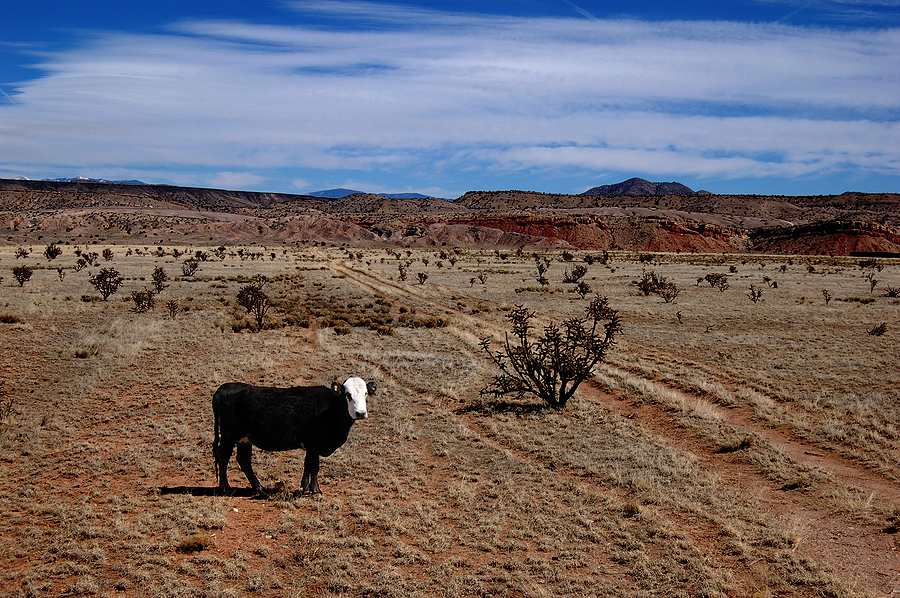
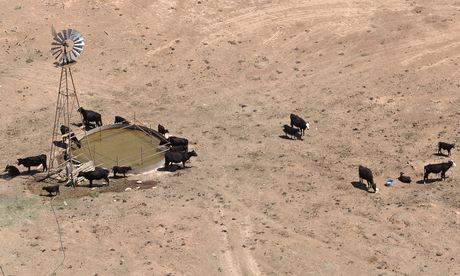
 Tablets of Ivermectin on May 19, 2021. Soumyabrata Roy—NurPhoto/Shutterstock
Tablets of Ivermectin on May 19, 2021. Soumyabrata Roy—NurPhoto/Shutterstock A nurse checks on a patient in the ICU Covid-19 ward at NEA Baptist Memorial Hospital in Jonesboro, Ark., on Aug. 4, 2021. Houston Cofield—Bloomberg/Getty Images
A nurse checks on a patient in the ICU Covid-19 ward at NEA Baptist Memorial Hospital in Jonesboro, Ark., on Aug. 4, 2021. Houston Cofield—Bloomberg/Getty Images Dr. Pierre Kory testifies during the Senate Homeland Security and Governmental Affairs Committee hearing titled Early Outpatient Treatment: An Essential Part of a COVID-19 Solution, Part II, in Dirksen Building on Dec. 8, 2020. Tom Williams—CQ-Roll Call/Getty Images
Dr. Pierre Kory testifies during the Senate Homeland Security and Governmental Affairs Committee hearing titled Early Outpatient Treatment: An Essential Part of a COVID-19 Solution, Part II, in Dirksen Building on Dec. 8, 2020. Tom Williams—CQ-Roll Call/Getty Images Protesters against COVID-19 vaccine and mask mandates demonstrate near the state Capitol in Santa Fe, N.M. on Aug. 20, 2021. Cedar Attanasio—AP
Protesters against COVID-19 vaccine and mask mandates demonstrate near the state Capitol in Santa Fe, N.M. on Aug. 20, 2021. Cedar Attanasio—AP

